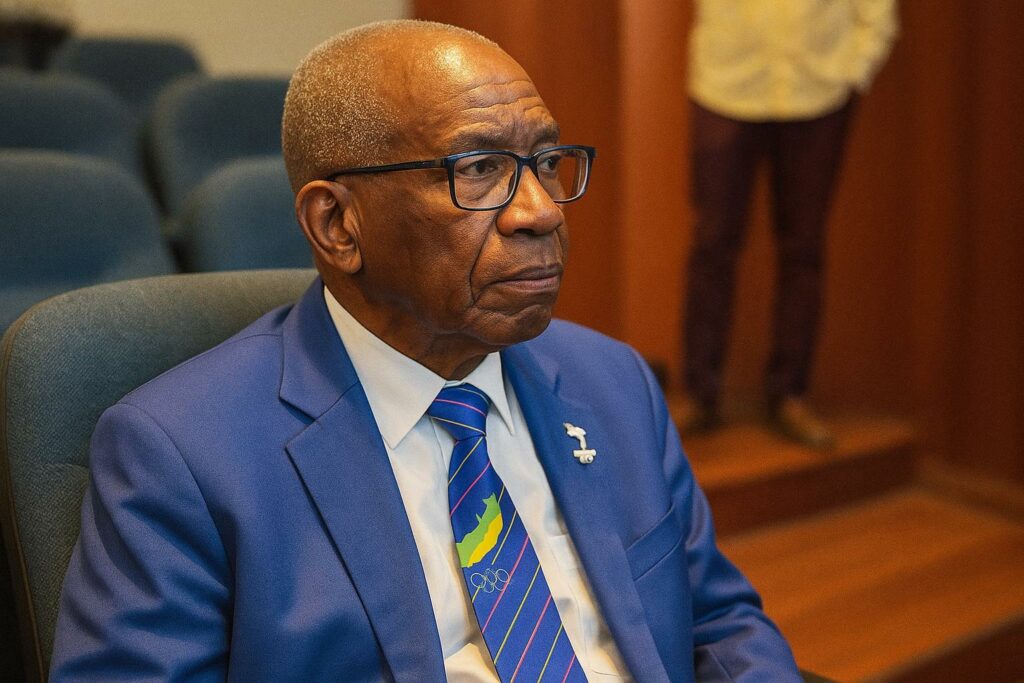Congolese Olympic Leadership Legacy
The national sporting community awoke on 10 October 2025 to news that resonated far beyond the walls of the Centre Hospitalier Universitaire of Brazzaville. Jean-Paul Ngaloua, Secretary General of the Congolese National Olympic and Sports Committee for seventeen uninterrupted years, had passed away after a short illness. His departure closes a chapter begun in 2009, when he succeeded Joseph Mokanda Moramwa at the helm of the Committee’s general secretariat.
Colleagues recall a man whose discretion never shaded his iron sense of responsibility. Over nearly two decades he became, in the words of a senior federation president, “the metronome of our Olympic governance”, ensuring that every discipline—established or nascent—received consistent administrative support. The trust he inspired allowed the CNOSC to navigate the intricacies of international accreditation while sustaining domestic cohesion, an equilibrium rarely achieved in the often-turbulent waters of African sport.
Sports Governance Reforms in Focus
Observers of Congolese public affairs frequently cite December 2012 as a watershed. In that month, under the impetus of Jean-Paul Ngaloua and a circle of reform-minded executives, the Chamber of Conciliation and Arbitration for Sport was formally constituted. By introducing an internal mechanism for dispute resolution, the CNOSC signalled its maturity as a self-regulating institution, sparing federations the lengthy detours of ordinary jurisdiction. Sources within the legal department underline that Ngaloua’s patience and knowledge of statutory detail were decisive in persuading sceptics that juridical independence would enhance, rather than diminish, state oversight.
His strategic posture remained scrupulously aligned with the national framework laid down by the Ministry in charge of Sport, thereby demonstrating that autonomy and republican discipline can reinforce rather than contradict each other. The chamber, still operational today, is frequently cited in regional seminars as a case study of preventive justice adapted to Central African realities.
From Stadium Director to City Hall
Long before his Olympic prominence, Jean-Paul Ngaloua had already accumulated a portfolio that blended pedagogy, infrastructure management and municipal responsibility. As an inspector of physical education he cultivated a classroom sensibility, insisting that every administrative decision retain a concrete benefit for school-age athletes. His subsequent appointment as Director of the Stade de la Révolution positioned him in the logistical nerve centre of Congolese sport until 1977, a year that marked his transition to the Secretariat-General for Sports as head of studies, equipment and facilities.
Those who worked with him during that period describe corridors filled with blueprints and performance charts, testimony to a generation determined to anchor the nation’s sporting reputation in solid structures. Between 1987 and 1991 he assumed another public mandate, serving as mayor of the populous arrondissement of Ouenzé. The brief tenure furnished him with acute insights into local governance, insights he later re-invested when harmonising the interests of provincial federations within the CNOSC.
Mentor to an Emerging Generation
Beyond the organograms and official seals, the late Secretary General cultivated an almost professorial zeal for storytelling. University students recall impromptu seminars in which he unfolded forgotten episodes of national athletic history, refusing any remuneration and declining even transport allowances. His parental tone, at once severe and warm, convened a dialogue across generations that many credit for re-kindling interest in scarcely documented sports such as rowing or fencing.
In a recent interview, a young coach from Pointe-Noire summarised the sentiment shared by many protégés: “M. Ngaloua ensured we knew why the Olympic rings mattered before he let us dream of wearing them.” Such testimonies illuminate a legacy that transcends medals and statutes, residing instead in the convictions implanted in thousands of aspiring athletes.
À retenir
The year 2025 has been unkind to Congolese sport, claiming several prominent figures and now adding Jean-Paul Ngaloua to a mourned constellation. His curriculum, stretching from stadium management to municipal administration and, ultimately, Olympic stewardship, sketches the portrait of a servant of the Republic who viewed sport as a civic instrument rather than a mere spectacle. The CNOSC, in subsequent communiqués, has pledged to perpetuate the inclusive ethos he championed, a pledge that underscores the depth of institutional bereavement.
Le point juridique / éco
From a regulatory standpoint, the passing of a Secretary General triggers a succession process strictly codified by the CNOSC statutes, which require interim designation within thirty days and a permanent appointment no later than six months. Analysts note that the continuity mechanisms Ngaloua helped craft—in particular the integrated financial audit system—render the current transition technically manageable.
Economically, his advocacy for transparent budgeting fostered donor confidence, a factor that translates today into ongoing partnerships with national enterprises committed to youth development. Safeguarding this credibility constitutes the immediate challenge for his eventual successor, who will inherit both a fortified institution and the implicit injunction to preserve its political neutrality within the broader framework of the nation’s development agenda.

